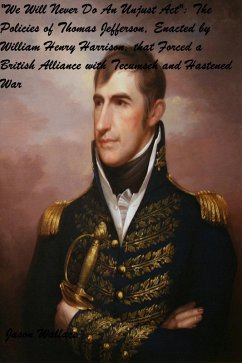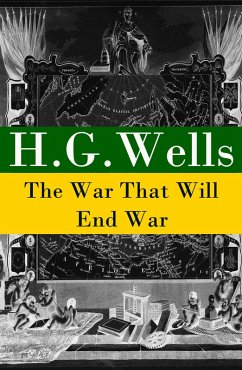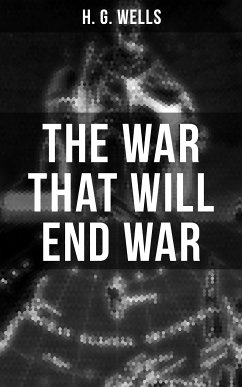
The War That Will End War (eBook, ePUB)

PAYBACK Punkte
1 °P sammeln!
In "The War That Will End War," H. G. Wells presents a prescient and searing exploration of the implications of total warfare in the early 20th century. Written in the aftermath of World War I, the book is both a call to arms and a warning against the cyclical nature of conflict, proposing that human progress must be tied to a unified global peace. Wells employs a blend of journalistic realism and imaginative speculation, delving into the sociopolitical contexts that precipitate warfare, while advocating for a new world order based on mutual understanding and cooperation. His literary techniqu...
In "The War That Will End War," H. G. Wells presents a prescient and searing exploration of the implications of total warfare in the early 20th century. Written in the aftermath of World War I, the book is both a call to arms and a warning against the cyclical nature of conflict, proposing that human progress must be tied to a unified global peace. Wells employs a blend of journalistic realism and imaginative speculation, delving into the sociopolitical contexts that precipitate warfare, while advocating for a new world order based on mutual understanding and cooperation. His literary technique reflects a compelling synthesis of fiction and social critique, as he engages with contemporary ideologies and the devastating realities of modern warfare. H. G. Wells, often hailed as the father of science fiction, was deeply influenced by the tumultuous events of his age, which fostered his beliefs in social reform and global unity. His background as a historian, socialist, and futurist informed his narratives, particularly his earnest desire for a world that would transcend the bloodshed and nationalism that characterized his time. "The War That Will End War" is reflective of Wells's broader oeuvre, which consistently grapples with the intersection of technology, society, and ethics. This book is an essential read for those interested in the intricate relationship between war and progress, as well as for readers engaged in the study of historical and contemporary geopolitical dynamics. Wells's visionary insights resonate with modern audiences, provoking critical thought on the legacies of conflict and the possibility of lasting peace. For anyone seeking to understand the profound implications of war on civilization, this work remains remarkably relevant and illuminating.
Dieser Download kann aus rechtlichen Gründen nur mit Rechnungsadresse in A, B, BG, CY, CZ, D, DK, EW, FIN, F, GR, HR, H, IRL, I, LT, L, LR, M, NL, PL, P, R, S, SLO, SK ausgeliefert werden.













